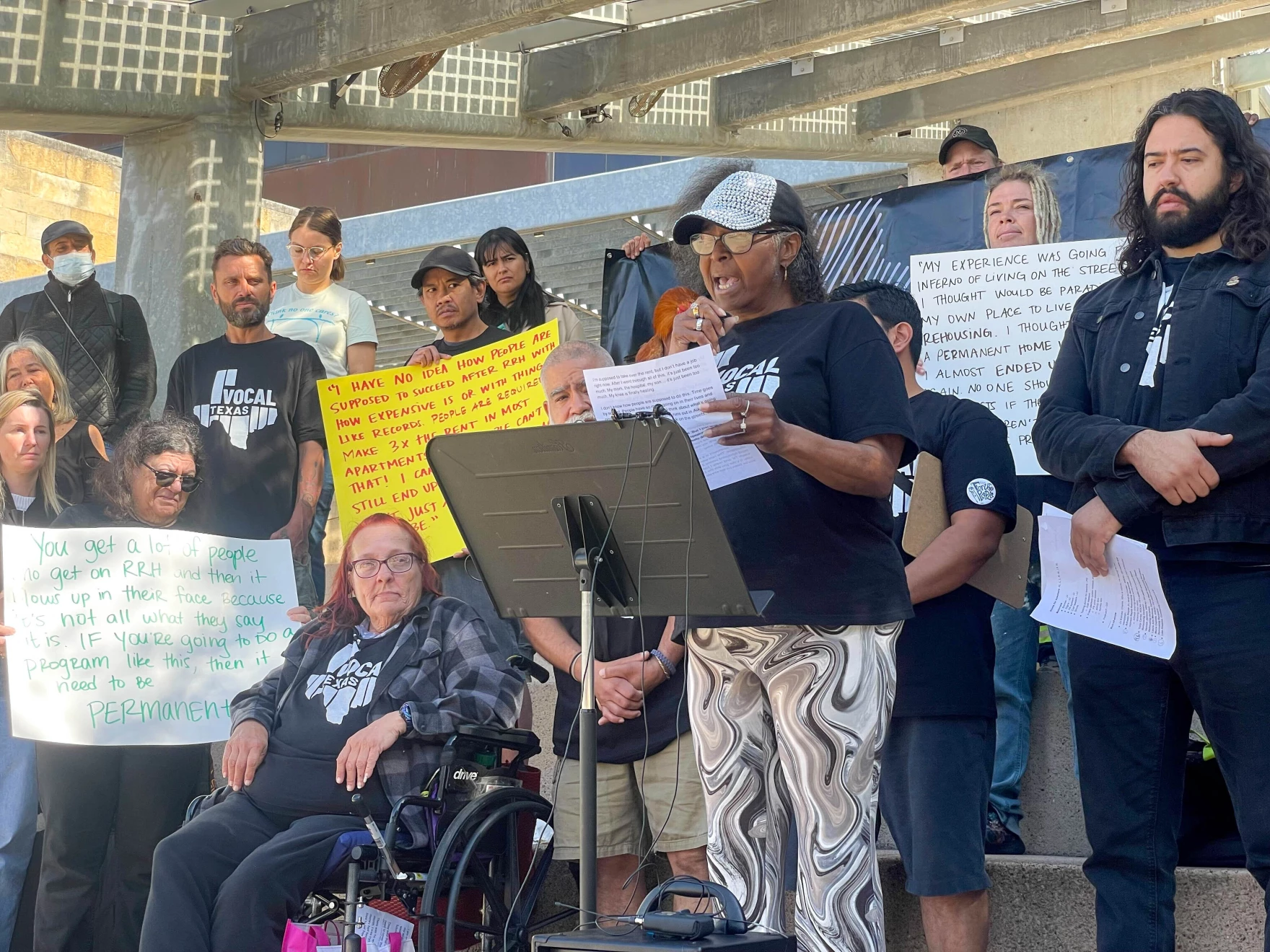Tony Carter lives in a two-bedroom apartment in South Austin. He was placed there in February through a rapid rehousing program.
Rapid rehousing programs in Austin provide up to 24 months of rental assistance and support services to people experiencing homelessness. But for some residents, it doesn’t close the affordability gap.
Carter said he receives assistance with his $1,700 monthly rent through the program, but his share of the rent is about to go up.
“I work two jobs, but I don’t make enough on both of them to even meet my monthly rent if I was to decide to stay in those apartments they’ve got me in,” Carter said.
The rapid rehousing program aims to help people transition into permanent, stable housing.
How it works is the program provides a certain amount of assistance with rent over time, with the renters’ share increasing slightly every few months. The idea is that at the end of the program, people who are enrolled will be able to afford their rent and take over the lease.
But many people who benefit from the program said that doesn’t always happen. Carter said he and his pregnant fiancé might end up back on the street if they can’t afford the $1,700 rent by the end of February 2025.
According to the Ending Community Homelessness Coalition, the program is working for about 60 percent of people enrolled in it. But Carter and several of his colleagues from the local advocacy group Vocal Texas said the help does not go far enough.
On Friday, Vocal Texas launched a campaign calling on the city to improve the system so more people benefit.
“While this program works for many people, we want this program to work for everyone who gets it,” said JJ Ramirez, an organizer with Vocal Texas. “There needs to be easier transitions into permanent housing. We need to stop these arbitrary time limits and we know the city can do this right now.”
A lot of them work multiple jobs – often at minimum wage – or are on fixed incomes due to disabilities and other factors. Others have found it hard to find a job because they have a criminal conviction that comes up in background checks.
Maria Cepeda said her rapid rehousing assistance ends in four months. When it runs out, she is not sure what she will do. She is not working right now after recovering from major knee surgery, and she is grappling with the loss of her mother. Cepeda said more months of assistance would go a long way.
“People have so much going on in their lives and people need time,” she said. “Every night, I think about what’s going to happen when my rapid rehousing runs out in August. … If it ends, I’ll end up back on the street. I appreciate what the city is doing for me, but I wish this rapid rehousing was for longer.”

Luz Moreno-Lozano/KUT News. Laura Ann Martinez said she was kicked out of the rapid rehousing program when she could not pay her portion of the rent.
Others said they wished they had more affordable options and had homes in good condition.
Matt Mollica, executive director for ECHO, acknowledged that the system isn’t perfect and faces challenges.
“Our vacancies in Austin are at all-time lows,” Mollica said. “Our housing costs, even though we’ve seen some relief over the last couple of months, are at all-time highs in terms of rent costs.”
That is also compounded by limited affordable and low-income housing options and high tenant criteria – like good credit, rental history and clean background checks – that many landlords require. Many landlords also refuse to accept housing vouchers or rental subsidies, Mollica said.
“In spite of that, the providers in the community that provide rapid rehousing have really done a great job of finding places for people,” Mollica said. “The providers are doing a really good job in a really difficult market.”
Vocal Texas advocates said Austin must find ways to keep people in their homes, including building and creating more affordable housing programs that offer support services and permanent solutions for people in need.
“As a community, we need to shore up these pitfalls and make sure that everyone is housed successfully,” Ramirez said. “Stop the clock. No one exiting a rapid rehousing program should be homeless again.”
As Austin prepares its budget for next year, Ramirez and others from Vocal Texas said they will urge council members to make better investments in these programs that support real people.
Austin and Travis County have been working for years to build and open more affordable housing and permanent supportive housing that gives people access to services like skills training and health care.
Around 1,000 units of permanent supportive housing are expected to be available by the end of 2025.
Late last year, the city created an independent office to lead the homelessness response. It previously functioned under Austin Public Health. The city also recently launched a text message alert system to connect with people who are unhoused.


